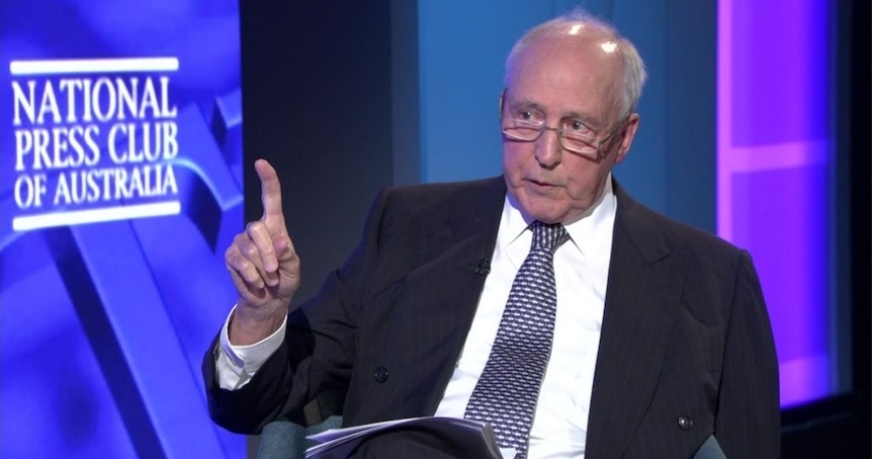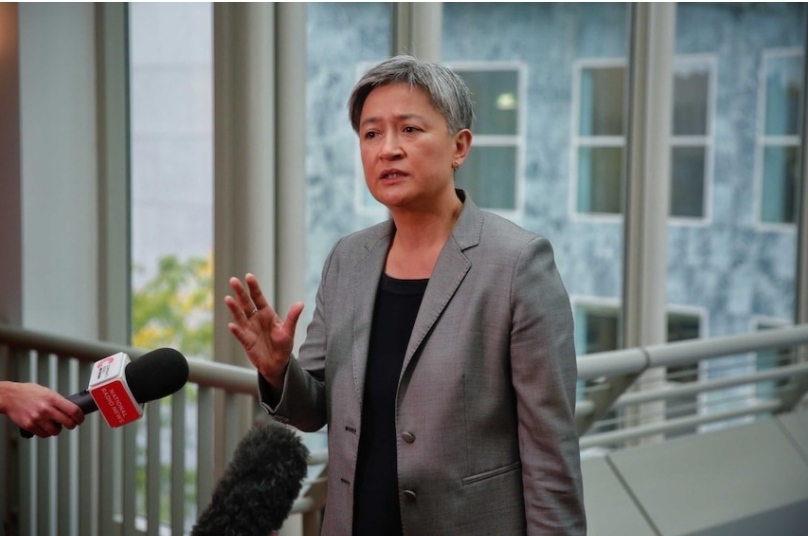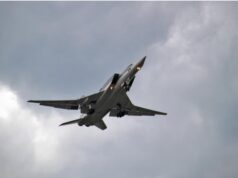Paul Keating plays down prospect of Chinese military invasion of Taiwan, urges Australia not to be drawn into conflict
By
Stephen Dziedzic

Former Australian PM Paul Keating says “Taiwan is not a vital Australian interest”
Former prime minister Paul Keating has warned the federal government not to be drawn into a military conflict over Taiwan, saying the fate of the self-ruled island was “not a vital Australian interest” and playing down the prospect of a Chinese military invasion.
Key points:
- Mr Keating said China will likely try and resolve the conflict with Taiwan “harmoniously”
- Tensions between the two nations have been intensifying recently
- The former prime minister said if the United States did go to war over Taiwan, Australia would not be obliged to join
China’s government claims Taiwan as its own territory and has been intensifying incursions into the island’s air defence zone, while issuing increasingly strident threats to its democratically elected leaders.
But Mr Keating said unless Taiwan tried to change its status or declared full independence, then Beijing and Taipei would likely “come to terms” and resolve the issue harmoniously.
“Taiwan is not a vital Australian interest. Let me repeat that, Taiwan is not a vital Australian interest,” he told the National Press Club.
“We have no alliance with Taipei, none. There is no document you can find.”
He also said if the United States and China did go to war over Taiwan then Australia would have no treaty obligations to join the conflict.
“We are committed to ANZUS for an attack on US forces, but … not an attack by US forces, which means Australia should not be drawn, in my view, into a military engagement over Taiwan, US-sponsored or otherwise,” he said
Under ANZUS, both countries are only obliged to “consult” and “act together to meet the common danger” if they are threatened or attacked, which does not mean they are automatically bound to come to the defence of one another.

Paul Keating criticised Shadow Foreign Minister Penny Wong’s foreign policy positions as too close to the government’s.
Mr Keating also once again lashed his own party for backing the government’s plan to build nuclear submarines, accusing its leadership of blindly following the Coalition in order to minimise any political disputes over foreign policy.
“[Shadow Foreign Minister] Penny Wong has taken the position that there shouldn’t be an ounce of daylight between her and the Liberal Party,” he said.
“That way, you end up with a reasonably quiet political life.
“You have no big disputes because you’re glued on up to the government, but you make no national progress.”
The former Prime Minister mocked the AUKUS security pact with the United States and the United Kingdom underpinning the government’s submarine plan, saying Australia was now “at odds with its geography” and “still trying to find our security from Asia rather than in Asia”.
“Here we are running to Cornwall to find our security in Asia. I mean, really,” he said.
That’s a reference to the recent G7+ meeting in the United Kingdom, where Scott Morrison finalised the AUKUS agreement with US President Joe Biden and UK Prime Minister Boris Johnson.
Paul Keating said that the eight nuclear submarines Australia planned to build would be like throwing “a handful of toothpicks at [a] mountain”.
And he argued that the Morrison government had needlessly provoked China, saying Beijing was now simply too big and powerful to be ignored.
“We have to deal with them because their power will be so profoundly big in this part of the world,” Mr Keating said.
When asked how Australia could resurrect its relationship with China he said Beijing was keen for more respect from Australia
“What the Chinese want, I think, is respect for what they have created,” he said.
The former prime minister also argued that Beijing’s threat to the existing world order and international security had been wildly overstated in Australia’s domestic political debate.
“China does not represent a contiguous threat to Australia,” Mr Keating told the Press Club.
“China is not about turning over the existing world order. It only wants to reform it, and it wants to reform it only because of its scale.”
Mr Keating said while the United States should remain in East Asia as a “balancing and conciliating” military power it could not longer hope to be the dominant military force in the region while being economically eclipsed by China.
The federal Opposition has not responded to Mr Keating’s speech, although some Labor MPs have privately dismissed his comments.
The Defence Minister also mocked Mr Keating on social media, calling him “Grand Appeaser Comrade Keating” and accusing the former prime minister of “talking down” Australia.
Source: ABC News




